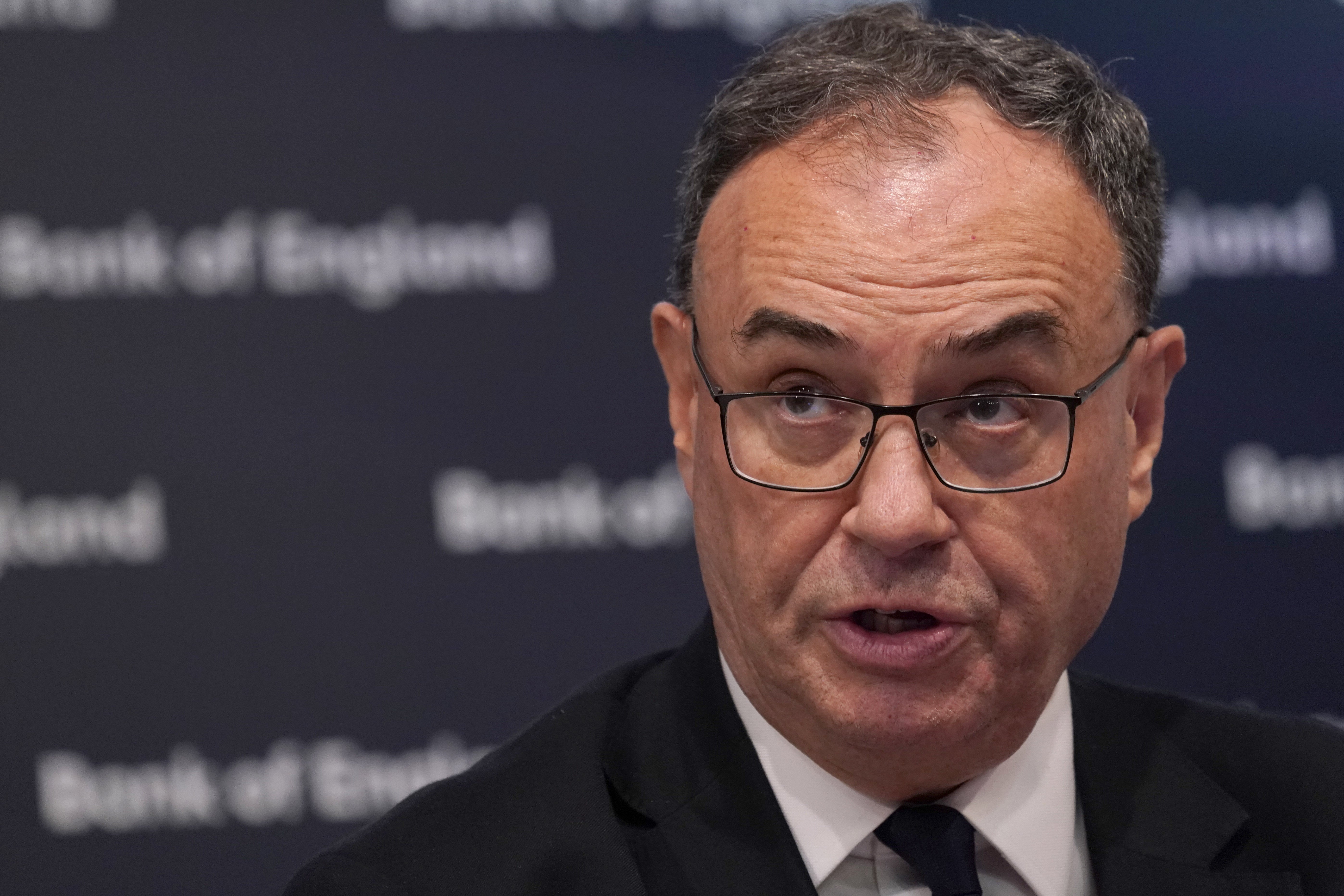It is time to cut interest rates – and give homeowners a break
With inflation falling rapidly, the Bank of England is looking to cut interest rates, writes James Moore. There are still reasons to be cautious but mortgage payers can look forward to light at the end of the tunnel


Andrew Bailey, the Bank of England’s governor, has suggested that interest rates could be coming down faster than previously expected.
“If you’d ask me what inflation was going to be now, it would have been a bit higher than it is today,” said the governor at an event organised by the Institute of International Finance in the US on Wednesday night. “Disinflation is happening, I think, faster than we expected it to.”
That might not look that big a deal until you consider how cautiously MPC members have to be with their market-moving words.
The Consumer Prices Index (CPI) took a September tumble, falling from 2.2 per cent to 1.7 per cent, below the City’s forecasts (1.9 per cent) the Bank of England’s 2 per cent target and where most people expected it to be just a few months ago.
Mr Bailey, as he usually does, caveated his words. “We have still genuine question marks about whether there have been some structural changes in the economy,” he said.
He also returned to his oft repeated concerns about the price of services, which increased at an annual rate of 4.9 per cent in the last set of figures, down from 5.6 per cent but still higher than the Monetary Policy Committee – which sets interest rates – is comfortable with. He said: “We’ve got to see services prices inflation come further down.”
There is clearly some disagreement on the MPC over how interest policy should play out against an uncertain backdrop. Its newest member Alan Taylor, an academic, has only voted once (to hold rates, with the majority in September). However, in research published by the Federal Reserve Bank of San Francisco in September 2023, he and his co-authors concluded that tight monetary policy (high rates) could weigh on a country’s economic potential for at least 12 years.
This had led to speculation that chancellor Rachel Reeves’s first appointee may take a more dovish stance than the hawkish Jonathan Haskel, whom he replaced. That would be handy for her, given the state of the economy and the government’s pressing need for growth, which high rates are hampering.
On the other hand, the Bank’s chief economist Huw Pill has made cautious statements recently.
What does all this mean for borrowers, who have been left feeling like one of Mike Tyson’s opponents from when the heavyweight was in his prime, with rates still at 5 per cent after a lone quarter-point cut?
The two- and five-year fixed mortgage deals most people prefer have fallen. The Moneyfacts average from three months ago had the two-year fix at 5.79 per cent and the five-year at 5.39 per cent. Today’s corresponding figures are 5.41 per cent and 5.10 per cent.
However, they haven’t changed much from a month ago when the two-year landed at 5.43 per cent while the five-year was actually a smidgeon cheaper at 5.09 per cent. What this tells us is that the market has paused for breath.
Now remember, fixed rate prices aren’t directly linked to base rates. They are determined by the City’s interest rate swaps market and the big lenders’ appetite for new business versus margins. But lower base rates would help, and if the City expects a lower pathway for rates, then prices should improve further.
Nicholas Mendes, mortgage technical manager at John Charcol, a large broker, says: “While it’s encouraging that further rate cuts are on the horizon, it’s still too early to confidently predict how many we will see or to what extent they will occur over the next 12 months. With differing opinions within the Bank of England, the situation remains positive but requires careful monitoring to manage expectations.”
Mendes says – and I think he is right – that in the short term people will be closely scrutinising what the MPC says in its minutes about the future (a quarter-point cut is highly likely at next month’s meeting).
You need a bit of inflation to keep the economic wheels turning. Deflation might seem like a fine idea after such a dramatic surge in prices, but it actually hurts because consumers are apt to sit on their hands when prices fall.
There are plenty of City economists who argue that the MPC should cut faster and that the UK economy needs it. Yes, we were all bruised by last year’s inflationary spike. But there’s been plenty of bruising as a result of the hard interest rate medicine imposed to correct it, too. Perhaps it’s time to turn on the rate cutting gas.






Join our commenting forum
Join thought-provoking conversations, follow other Independent readers and see their replies
Comments